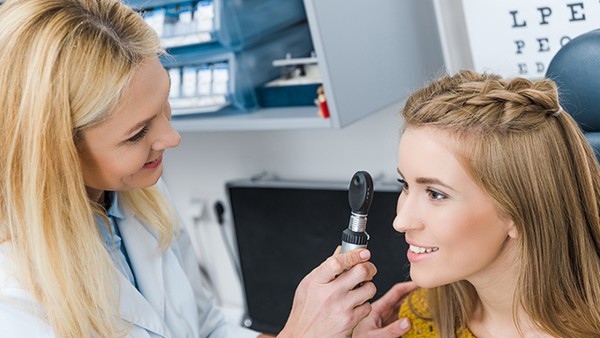How to Solve Infant Hearing Impairment

Hearing Impairment in Infants
Hearing impairment is a common condition that affects approximately 1 to 3 per 1,000 newborns. It can range from mild to profound and can have a significant impact on a child's development.
There are many different causes of hearing impairment in infants. Some of the most common causes include:
Genetic factors: Some forms of hearing impairment are caused by genetic mutations. These mutations can be inherited from either parent or occur spontaneously.
Prenatal factors: Hearing impairment can also be caused by factors that occur during pregnancy. These factors include:
Infections, such as rubella or cytomegalovirus
Certain medications
Maternal smoking or alcohol use
Premature birth
Birth-related factors: Hearing impairment can also be caused by factors that occur during birth. These factors include:
Low birth weight
Premature birth
Birth asphyxia
Jaundice
Postnatal factors: Hearing impairment can also be caused by factors that occur after birth. These factors include:
Meningitis
Otitis media
Head injuries
Certain medications
Signs and Symptoms of Hearing Impairment in Infants
The signs and symptoms of hearing impairment in infants can vary depending on the severity of the hearing loss. Some of the most common signs and symptoms include:
Delayed speech and language development
Difficulty following directions
Difficulty understanding conversations
Turning the head to one side to hear
Cupping the ear to hear
Yelling or speaking loudly
Making strange noises or grunting
Irritability or fussiness
Poor attention span
Behavioral problems
Diagnosis of Hearing Impairment in Infants
Hearing impairment in infants is diagnosed through a series of tests. These tests may include:
Otoacoustic emissions (OAEs): OAEs are sounds that are produced by the inner ear. They can be used to test the function of the inner ear.
Auditory brainstem response (ABR): ABRs are electrical signals that are produced by the brain in response to sound. They can be used to test the function of the auditory nerve and brainstem.
Tympanometry: Tympanometry is used to test the function of the middle ear. It can also be used to detect fluid in the middle ear.
Treatment of Hearing Impairment in Infants
The treatment for hearing impairment in infants depends on the severity of the hearing loss and the underlying cause. Some of the most common treatments include:
Hearing aids: Hearing aids are devices that amplify sound. They can be used to improve hearing in infants with mild to moderate hearing loss.
Cochlear implants: Cochlear implants are surgically implanted devices that bypass the damaged inner ear and send sound signals directly to the auditory nerve. They can be used to improve hearing in infants with severe to profound hearing loss.
Speech therapy: Speech therapy can help infants with hearing impairment learn to develop speech and language skills.
Auditory training: Auditory training can help infants with hearing impairment learn to listen and understand speech.
Prognosis for Infants with Hearing Impairment
The prognosis for infants with hearing impairment depends on the severity of the hearing loss and the age at which it is diagnosed. With early diagnosis and treatment, most infants with hearing impairment can develop speech and language skills and achieve a normal level of communication.
How to Prevent Hearing Impairment in Infants
There is no sure way to prevent hearing impairment in infants. However, there are a number of things that can be done to reduce the risk of hearing impairment, including:
Getting vaccinated: Vaccinations can protect infants from infections that can cause hearing loss, such as rubella and cytomegalovirus.
Avoiding smoking and alcohol during pregnancy: Smoking and alcohol use during pregnancy can increase the risk of premature birth and low birth weight, both of which are risk factors for hearing impairment.
Protecting infants from noise: Loud noises can damage the inner ear and cause hearing loss. It is important to protect infants from loud noises by wearing earplugs or muffs when necessary.
How to Cope with Having an Infant with Hearing Impairment
Having an infant with hearing impairment can be a challenging experience. However, there are a number of things that can be done to cope with this challenge, including:
Educating yourself: Learning about hearing impairment and its impact on development can help you to better understand and support your child.
Finding support: There are many resources available to families of infants with hearing impairment. These resources can provide you with information, support, and guidance.
Being patient: It takes time for infants with hearing impairment to develop speech and language skills. Be patient with your child and provide them with the support they need to succeed.
The above is all the content that the editor wants to share with you. I sincerely hope that these contents can bring some help to your life and health, and I also wish that your life will be happier and happier.
Topic: #solve #to #how














